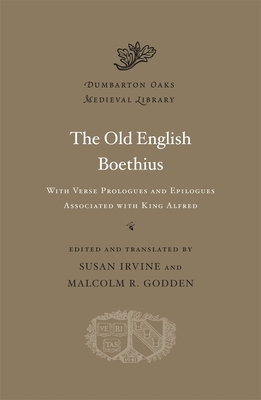Newly released
This book is new and will be uploaded as soon as it becomes available to us and if we secure the necessary publishing rights.

The Old English Boethius Book PDF
(0)
Author:
BoethiusNumber Of Reads:
72
Language:
English
Category:
Social sciencesSection:
Pages:
477
Quality:
excellent
Views:
1072
Quate
Review
Save
Share
Book Description
The Old English Boethius: with verse prologues and epilogues associated with King Alfred
The Old English Boethius boldly refashions in Anglo-Saxon guise a great literary monument of the late antique world, The Consolation of Philosophy. Writing from prison around 525 CE, Boethius turned to philosophy to transform his personal distress into a powerful meditation on fate, free will, and the human capacity for virtue in a flawed, fallen world. King Alfred and his hand-picked circle of scholars in ninth-century England recognized the perennial relevance of Boethius’s themes. They reshaped the Latin text into an Old English version that preserves the essence while accommodating a new audience: the Roman Fabricius, for example, becomes the Germanic weapon-smith Weland. The translation even replicated Boethius’s alternation of prose and verse—only in this case with Old English prose alternating with alliterative verse.
Chaucer and Queen Elizabeth each turned The Consolation of Philosophy into English, giving it an unrivalled pedigree of translators, but King Alfred was the first to bring it to a wider vernacular audience. Verse prologues and epilogues associated with the court of Alfred fill out The Old English Boethius, offering readers a fascinating glimpse of the moment when English confidently claimed its birthright as a literature capable of anything, from sublime ideas to subtle poetry.
Boethius
Anicius Manlius Boethius was a Roman senator, consul, magister officiorum, historian, and philosopher of the Early Middle Ages. He was a central figure in the translation of the Greek classics into Latin, a precursor to the Scholastic movement, and, along with Cassiodorus, one of the two leading Christian scholars of the 6th century. In 1883, Pope Leo XIII sanctified him as a saint within the Diocese of Pavia, where he is buried.
Boethius was born in Rome a year after the collapse of the Western Roman Empire. A member of the Anici family, he was orphaned following the family's sudden decline and was raised by Quintus Aurelius Memmius Symmachus, a later consul. After mastering both Latin and Greek in his youth, Boethius rose to prominence as a statesman during the Ostrogothic Kingdom: becoming a senator by age 25, a consul by age 33, and later chosen as a personal advisor to Theodoric the Great.
In seeking to reconcile the teachings of Plato and Aristotle with Christian theology, Boethius sought to translate the entirety of the Greek classics for Western scholars. He published numerous transcriptions and commentaries of the works of Nicomachus, Porphyry, and Cicero, among others, and wrote extensively on matters concerning music, mathematics, and theology. Though his translations were unfinished following an untimely death, it is largely due to them that the works of Aristotle survived into the Renaissance.
Despite his successes as a senior official, Boethius became deeply unpopular among other members of the Ostrogothic court for denouncing the extensive corruption prevalent among other members of government. After publicly defending fellow-consul Caecina Albinus from charges of conspiracy, he was imprisoned by Theodoric around the year 523. While jailed and suffering from depression, Boethius wrote De consolatione philosophiae a philosophical treatise on fortune, death, and other issues—which became one of the most influential and widely-produced works of the Early Middle Ages. He was tortured and executed in 524, becoming a martyr in the Christian faith.
Book Currently Unavailable
This book is currently unavailable for publication. We obtained it under a Creative Commons license, but the author or publisher has not granted permission to publish it.
Rate Now
5 Stars
4 Stars
3 Stars
2 Stars
1 Stars
The Old English Boethius Quotes
Top Rated
Latest
Quate
Be the first to leave a quote and earn 10 points
instead of 3
Comments
Be the first to leave a comment and earn 5 points
instead of 3